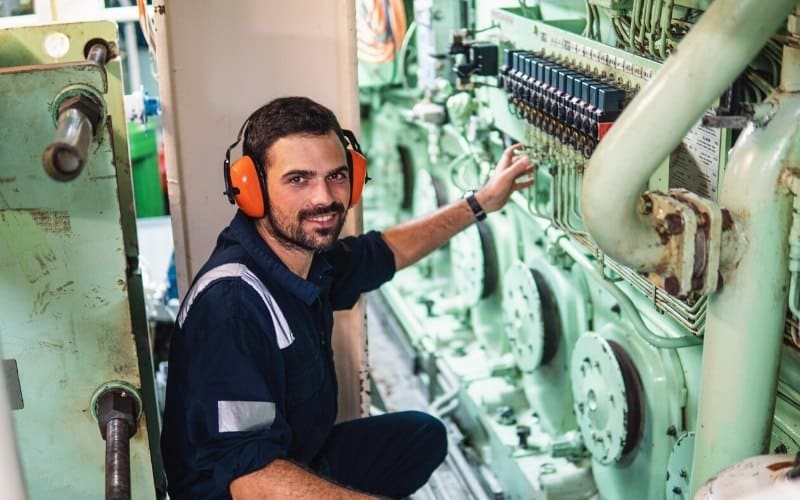

If you have worked on ship, you must have come across the terms sounding and ullage, which often tend to confuse people. In this article, we will learn as to what the difference between sounding and ullage is, and what is the importance of each one of them?
Both Sounding and ullage can be easily understood with the help of following diagrams:
Sounding is the measured height of the fluid from the surface of the fluid to the bottom of the tank. Ullage is the void space in the tank measured from the top of the tank to the upper surface of the fluid. Ullage is measured when the content of a tank is highly viscous and if the tank is filled to the maximum.
Sounding pipe is constructed in the tank. These pipes protrude slightly above from the top of the tank so that sounding can be taken safely and easily without opening any manhole door. They even have protecting caps at the top which can be opened at the time of sounding.
The sounding pipe is open from the bottom which allows the liquid filling up the pipe and facilitating it to have the same level as of the tank.
After measuring sounding or ullage, it is compared in the sounding book to know the volumetric quantity of the tank. Thus, sounding of the pipe becomes sounding of the tank.
To avoid pressurizing of tanks, which can give a wrong reading in the sounding pipe and to avoid distortion of bulkheads of tank, a vent pipe is provided which releases the air and vapors inside the tank.


Frequency
Sounding frequency on a ship differs from company to company and according to the working policy and the nature of operations going on board. A brief note as per the general procedure followed on ship is given below:
1) All Fuel oil tanks lube oil tanks and diesel oil tanks must be sounded twice a day, once in morning and once in evening, and recorded in the event of leak or any other emergency related to oil content of tanks.
2) All waste water tanks including bilge and sludge tank must be sounded twice a day.
3) Ballast water tank and fresh water tanks should be sounded once a day.
4) As bunkering operation is one of the most critical operations, the frequency of operation drastically increases at the initial and final stages of the operation (every 15 minutes) to check the inflow of oil in correct tank at initial stage and to avoid overflow of oil during final stage of operation.
5) When waste water of ship is internally transferred, discharged overboard through 15 ppm equipment or given to the shore facility, sounding is to be taken twice or thrice every hour.
6) When ballasting or de-ballasting of the tank is going on, hourly sounding is to be taken or as decided by the chief officer.
7) Fresh water tank sounding to be taken daily. Feed water tanks in the engine room are to be sounded at every watch to keep a track of leakages.










We believe that knowledge is power, and we’re committed to empowering our readers with the information and resources they need to succeed in the merchant navy industry.
Whether you’re looking for advice on career planning, news and analysis, or just want to connect with other aspiring merchant navy applicants, The Marine Learners is the place to be.